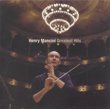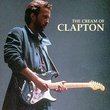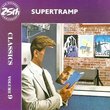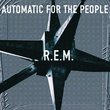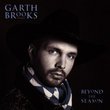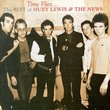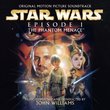| All Artists: Jethro Tull Title: Benefit Members Wishing: 4 Total Copies: 0 Label: Capitol Release Date: 1/8/2002 Album Type: Original recording remastered, Original recording reissued, Extra tracks Genres: Pop, Rock, Classic Rock, Metal Styles: Progressive, Progressive Rock, Album-Oriented Rock (AOR) Number of Discs: 1 SwapaCD Credits: 1 UPCs: 724353545727, 766487952927 |
Search - Jethro Tull :: Benefit
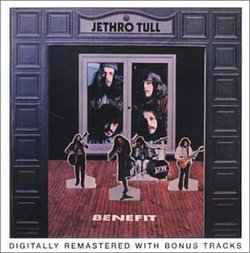 | Jethro Tull Benefit Genres: Pop, Rock, Classic Rock, Metal
Digitally remastered reissue of 1970 album includes four bonus tracks, 'Teacher' (Original UK Mix), 'Witch's Promise', 'Just Trying To Be' & 'Singing All Day'. |
Larger Image |
CD DetailsSynopsis
Album Description Digitally remastered reissue of 1970 album includes four bonus tracks, 'Teacher' (Original UK Mix), 'Witch's Promise', 'Just Trying To Be' & 'Singing All Day'. Similarly Requested CDs
|
CD ReviewsFOR THE BENEFIT OF TULL FANS, ONE GREAT ALBUM!! t'amant | WA | 04/12/2005 (5 out of 5 stars) "This is my favorite straight forward bluesy, rock, trippy Tull album. I listened to Benefit the most probably in the 70's (my teenage years), although I loved Stand Up, Aqualung, Thick as a Brick, Minstrel in the Gallery And Songs from the Wood about as much. Tull was one of my top bands then (and now) and I really feel that these albums are some of the best Rock has to offer. Benefit, as the best song-oriented album from the blues/rock stretch in my opinion, really stands out as the gelling of the Tull sound. Martin Barre found his confidence and ran with it while Ian Anderson really picked up the complexity level of his many contributions. Glenn Cornick's bass playing is outstanding and represents some of the best of the era, although this was his last gig with Tull. John Evan joins the band here and adds to the more layered quality and strangely seems to be the glue that binds that classic Tull sound. Other members seem to feed off of the new energy! Benefit feels to me very brooding and powerful...the psychedelic atmoshere is at a peak here as well. I am trying to describe why this album is one of the greats of all time to me, but words do little to describe the powerful emotional impact I feel for this one, for whatever reason...crank it up and feel for yourself! The Extra tracks are a great addition (Teacher was on the original American album) and the sound quality is at a new high. This is an essential recording of the era and a truly great bargain, although lyrics should have been included as well as better track notes (I like it better than Aqualung - newbies could begin here with confidence). Enjoy!!!" Still retains enough of the edginess and eccentricity loce_the_wizard | Lilburn, GA USA | 07/07/2004 (4 out of 5 stars) ""Benefit" remains my favorite Jethro Tull recording, likely for all the wrong reasons. First, this was the first session where Ian Anderson and his band mates embraced folk music over the blues-tinged sound of their earlier work. Next, Martin Barre sounds engaged, determined, and focused on guitar, and his strong effort here keeps the music well grounded (something that is a failing on some Tull recordings in my opinion). Third, John Evan's returns to the fold and adds some stellar work on keyboards that greatly enrichs the sound. Fourth, I liked Glen Cornick's bass lines better than those by any other Tull bass player. Fifth, Ian Anderson crafted some of his best lyrics for "Benefit," avoiding the ornate and tiring style on both his later and subsequent Jethro Tull recordings. Sixth, Mr. Anderson plays some inspired flute and contributes some excellent acoustic guitar that meshes wonderfully with Mr. Barre's amped up electric guitar. This recording still retains enough of the edginess and eccentricity that caused Jethro Tull to stand out during the band's early years and that caught my ear way back when. I would recommend getting the remastered CD more for the improved sound quality than the bonus tracks (which aren't bad though)." "And awake to a new day of living" mwreview | Northern California, USA | 04/22/2003 (5 out of 5 stars) "My review is on the un-remastered version of Benefit which is the one that I own. For some reason, Amazon includes the same reviews for this album under both the remastered and unremastered CDs even though there is definitely a difference between the two. Looking at the extra tracks on the remastered CD, I see no reason to spend my money on another copy of Benefit since I already have the bonus tracks on either Living in the Past or the 20th Anniversary boxed set. From reading the other reviews, the "UK version" of "Teacher" isn't anything special either. Also, why is "Sossity" and "You're a Woman" listed as two separate tracks? I'll stay with my CD copy of Benefit, thank you.Now, as to the album itself, after putting my top JT albums list together for Amazon, I decided that Benefit is my favorite Tull record. I enjoy this one (and even Stand Up) even more than Aqualung. For the most part, Benefit is brilliant from start to finish. The only weakness is "To Cry You A Song", which is overly repetitive at times and, unfortunately, is the longest track on the album at 6:09. I tolerate that track, though, because the rest of the album is so awesome. "With You There To Help Me" hooked me right away. It is an innovative number which brilliantly balances the edge between art and noise. "Son" is a sarcastic, humorous track about a young man's estrangement from a stereotypical strict father (using all those fatherly clichés). One gets the idea of what Ian Anderson's relationship with his pop was like when listening to the angry lyrics. Every time I hear "Don't talk like that I'm you're old man" I have to chuckle. "Sossity; You're A Woman" is a soothing ending to the album. "Teacher" is probably the most well-known song from Benefit, being included on the US release and on M.U. The Best of Jethro Tull. Although it is one of the first tracks I ever heard from Tull and I love it, it is really in the middle of the pack in terms of the top songs on Benefit. My favorite is "For Michael Collins, Jeffrey, and Me." Certain parts of this song are too wonderful for words. If your Jethro Tull collection starts with Aqualung, make sure you get their earlier albums Stand Up and this brilliant work. And, since you will probably be hooked on Tull's music and will be buying up their back catalog anyway, don't worry about getting the remastered CD, as you'll get the "bonus tracks" elsewhere."
|

 Track Listings (14) - Disc #1
Track Listings (14) - Disc #1